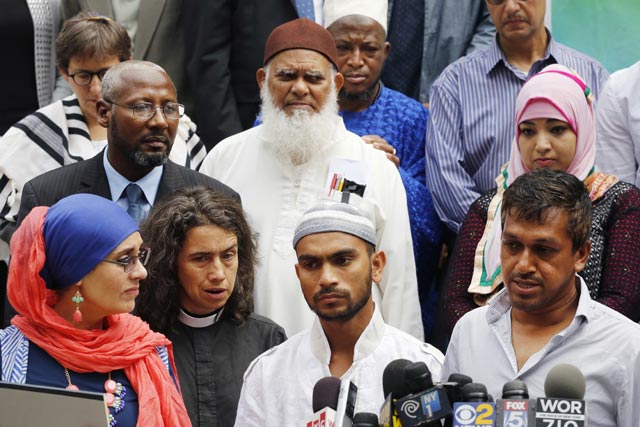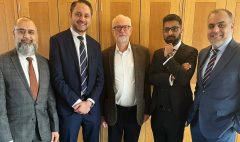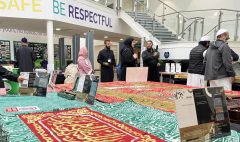NYC Muslims grapple with surveillance after Imam’s killing
August 27, 2016 2023-08-31 20:02NYC Muslims grapple with surveillance after Imam’s killing

NYC Muslims grapple with surveillance after Imam’s killing
At an emotional funeral service for a New York City imam and his assistant who were gunned down on a Queens street, one friend of the victims took the microphone and demanded that the city install security cameras outside mosques citywide to help protect Muslims from harassment or violence. “Each street corner should have security cameras around our places of worship,” said Anwar Hussein Khan, a teacher. But in the days following that impassioned plea, the city’s Muslim community has since backed away from that request.
Muslim activists and civil liberties groups here have spent years opposing police surveillance of mosques. At a meeting Wednesday night, representatives of dozens of Muslim community groups said surveillance of mosques shouldn’t be handled by the government. “We must look within to safeguard our houses of worship,” said Debbie Almontaser, of the Muslim Community Network, said Thursday at a news conference outside City Hall.
The killings of Imam Maulana Alauddin Akonjee and his friend Thara Uddin have forced Muslims in New York to grapple with the push-and-pull of wanting police protection, but also being nervous about exposing themselves to more scrutiny by law enforcement.
In a series of stories that won a Pulitzer Prize in 2012, The Associated Press reported on efforts by the New York Police Department to seek out potential terrorists by infiltrating Muslim student groups, putting informants in mosques and sending operatives into Muslim businesses to listen to conversation.
The tactics, when revealed, left many in the Muslim community feeling distrustful of the police. In 2014, the police department’s so-called Demographics Unit was disbanded and a pair of lawsuits over the intelligence-gathering practices have been settled.
“For our community we are also a target of police surveillance,” said Linda Sarsour, the executive director of the Arab American Association of New York. “It’s a difficult predicament to be in as a Muslim community right now.”
Source: The Associated Press








